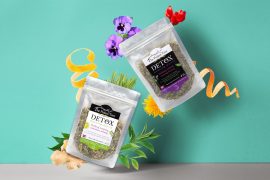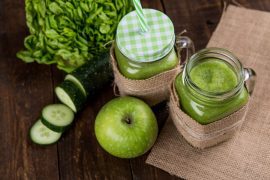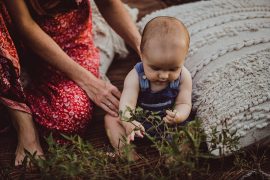By Hannah Schenker
In today’s modern world of hygiene obsession and sanitation, it appears that too much of a good thing can actually turn out to be a bad thing. If you are already a generally healthy individual, by constantly washing hands with antibacterial soap, using hand sanitizers, spraying every possible surface with cleaning products and washing your clothes at the slightest hint of dirt, you could in fact be ridding your homes and selves of beneficial bacteria, and setting yourselves up for illness as a result. Dirt is good! Our immune systems need to flex their muscles by getting in contact with these organisms, so that we can better fight off the big bad bugs. Could the rise of autoimmune, allergy and gut disorders have some kind of connection to our cleanliness madness?
Some research is saying yes, there is a connection and not only to physical illness, but mood as well. Mycobacterium vaccae is the substance that is reported to be at play here, is found in your garden soil. The study “Identification of an Immune-Responsive Mesolimbocortical Serotonergic System: Potential Role in Regulation of Emotional Behavior” by Christopher Lowry et al., was published online in 2007 in Neuroscience. The gardeners among us will probably nod in agreement here, as they know first-hand how good gardening makes you feel, but perhaps not realizing this could be the reason why. This particular bacteria triggers the release of serotonin in your brain, your feel-good chemicals, thus the feeling of wellbeing that results. (You can read more about the study here).
These studies confirm that being raised “germ-free” results in a higher incidence of autoimmune and allergy diseases, and that it’s actually vital that you come into contact with these organisms when you are young, to gain the most benefit to your immune system and microbiome. Only being exposed as an adult is not enough to alter your immune function.
So let your babies have an outside play area, where you know the soil is organic, once they are 3-4 months old (yes, they will probably put it in their mouths).
“What a child is doing when he puts things in his mouth is allowing his immune response to explore his environment,” Mary Ruebush, a microbiology and immunology instructor, wrote in her book, Why Dirt Is Good, “Not only does this allow for ‘practice’ of immune responses, which will be necessary for protection, but it also plays a critical role in teaching the immature immune response what is best ignored.”
Encourage your wee ones to run around barefoot, to make mud pies and climb trees and look for worms. Better yet, why not involve them in gardening directly by planting some seeds together and seeing them develop into plants. You can do this indoors, or on your balcony if you don’t have garden space. There are great biological reasons for them to be drawn to these kinds of activities, so involve them, encourage them and help them develop into healthy adults.
Hannah Schenker is a freelance writer, editor and regular contributor to The Natural Parent Magazine. She lives with a touch of magic in Golden Bay, New Zealand.
Photography: Jenna Young











